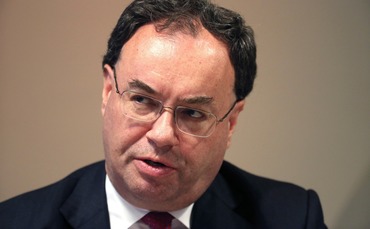
Speaking at a Treasury Select Committee alongside several central bank colleagues, Bailey was grilled over the Bank’s interest rate polices in the shadow of today’s (16 November) inflation results and tomorrow’s Autumn Statement.
UK energy and food prices push inflation to 41-year high
The Office for National Statistics revealed that inflation rose to 11.1% in October, a 41-year high for the UK. According to the ONS, rising energy and food costs were a big contributor, both factors Bailey addressed when asked what had gone wrong with the Bank’s forecast modelling.
He told Harriett Baldwin, the new chair of the Treasury committee, that since Covid hit the economy, it has been dealt global supply chain issues resulting from the aftermath of the pandemic, Russia’s invasion of the Ukraine – described as “the big one” – and the tightness of the UK labour market.
Regarding Covid, Bailey said it was “obviously necessary and appropriate that monetary policy responded to”.
According to him, there was evidence the pressure from supply chains “is starting to come off”.
Regarding the pressure on labour and wages, Bailey said there was “real uncertainty” about whether the ending of the Covid furlough scheme would not cause an increase in unemployment and “all forecasts were at the low end of that distribution”.
In response to this, Baldwin challenged whether there was “any issue with your models”, to which Bailey replied there was not, but added “with the benefit of hindsight things would have been done differently”.
He said if there had only been one shock to deal with, such as supply chain issues, the response would have been “very different to the situation that we have now”.
‘Dovish’ Bank of England message heralds faster turnaround for investors
Bailey was also asked about the bank’s interest rate policy, as Baldwin argued the risks of maintaining the quantitative easing policy for as long as it did, rather than going into quantitative tightening, increased the risk of a scenario in which inflation “takes hold and [we] enter the type of spiral we are currently seeing”.
The governor admitted QE had contributed to inflation “because that what it is designed to do, but it was not a very big contribution”.
He argued that to do what Baldwin was suggesting, the Bank would have needed to start QT at the height of the pandemic, due to how long policy effects take to materialise.
“Put like that, I am afraid I do not think that is a very plausible thing [to have done] in the middle of a pandemic…I do not think that would have been a reasonable thing to have done based on what we knew at the time.”
Autumn Statement 22 preview: What should markets expect?
Mini Budget reflections
On the eve of the Autumn Statement tomorrow, Bailey was clear the could not speculate on what would be announced.
“I do not know what is in it,” he said.
Given the massive impact caused by the last major fiscal event, he was asked what he had known about the Mini Budget ahead of its publication. He revealed that while what he had been told “had not translated into anything specific”, the details on this occasion had been “unusually up in the air”.
Bailey said that while statements had been made prior to the Mini Budget by both the former prime minister and former chancellor, “it was not clear what was going to be in that package”.
The Bank of England was forced to intervene with emergency support measures during the peak of the market reaction to Liz Truss and Kwasi Kwarteng’s Mini Budget, issuing emergence bond buying to prop up pension funds suffering from an LDI crisis.
At today’s meeting, Bailey said the Mini Budget had damaged the UK’s reputation on the international stage, citing interactions he had had with members at subsequent International Monetary Fund meetings.
“It will take longer to rebuild that reputation than it will to correct the gilt curve,” he said.






